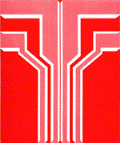Nebraska Academy of Sciences

Transactions of the Nebraska Academy of Sciences and Affiliated Societies
Date of this Version
1980
Document Type
Article
Abstract
Few recent works have generated as much intellectual discussion as Thomas S. Kuhn's The Structure of Scientific Revolutions. Yet given the impact this book has had on our understanding of science-its role in the demise of logical positivism, in the current outpouring of interest in the history of science, and in changes in science education - perhaps it is time now, some ten years after Kuhn's provocative Postscript, for still another look at his thesis. That is the purpose of this study. First, those elements of Kuhn's book which committed him to a scientific relativism are reconstructed. Secondly, this relativism is critiqued from several rather different points of view. Finally, the position is defended that Kuhn's view of science is suspect because it generates two paradoxes, one self-referential and one existential, and because his analysis is considered inadequate both from a pragmatic and a phenomenological perspective.


Comments
1980. Transactions of the Nebraska Academy of Sciences, VIII:211-215. Copyright © 1980 Dougherty